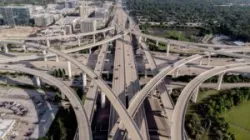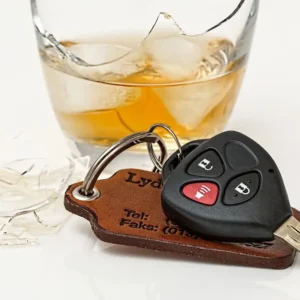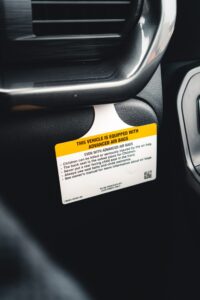
FREEWAY VS. HIGHWAY
People often confuse the terms “freeway” and “highway” in everyday colloquial conversation, but have you ever stopped and considered what the the difference between freeway and highway is? In this article, the team at Omega Law Group, a Los Angeles Personal Injury law firm, is going to walk you through the subtle and nuanced distinction that separates these terms from each other.
WHAT IS A FREEWAY?
Freeways are control-access highways, meaning that it has limited traffic control to allow for free-flowing traffic. Connecting major cities from one another, they are only accessible via entrance and exit ramps, are devoid of any stop lights, intersections, and have limited traffic control (if at all). This makes them perfect roadways for trucking and shipping as the speed limits in these roads are faster than your average side street. Because a lot of the drivers and truckers in the freeway travel long distances, rest areas are built alongside the road to allow them to momentarily stop without having to exit.
WHAT IS A HIGHWAY?
Like freeways, what people refer to as “highways” generally have higher speed limits than the regular side streets. They are also a lot wider and usually contain multiple lanes to accommodate for the influx of cars using it to get from one destination to another. However, they differ from freeways in that they can have stop lights, cross-traffic, and sometimes even pedestrian lanes. So while cars in general run faster in highways than side streets, they have a much lower speed limit on average than freeways. Highways are more prevalent in rural areas than they are in urban areas. This is not to say that urban areas don’t have highways, they’re just not as common.
WHAT IS THE DIFFERENCE BETWEEN FREEWAY AND HIGHWAY?
In actuality, every freeway is a highway, but not all highways are freeways. The necessary condition that classifies a road to be a highway is its wideness and its ability to accommodate high speed vehicles. Hence, a freeway is considered as such because not only is it wide, it’s also designed for fast transportation.
So what’s the true difference between highway and freeway as it is colloquially used? Basically, highways have traffic control whereas freeways don’t.
The Conception Of The Highway System
The concept of the highway system was first conceived by Thomas MacDonald in the 1900s when he became the chief of the Federal Bureau of Public Roads who saw the inefficiency of transportation as a major detriment to people’s money making potential.
With Americans in desperate need of employment during the Great Depression, this massive undertaking was approved by then-president Franklin Delano Roosevelt. What was then a mere idea was on its way to become a tangible reality, one that will have a ripple effect on how this country operates.
For one, the highway system initiated the rise of metropolises and led to the economic boom of many cities nationwide. Transportation to and from places has become a lot more easy, leading to the rise of tourism in certain areas.
But as the highway infrastructure is aging, some have expressed some concern about its durability. California’s interstate pavement has been reported to be in “poor condition,” particularly its “structurally deficient” interstate bridges.
THE RISK OF DRIVING IN A FREEWAY AND HIGHWAY
Indeed, while the interstate highway system aided in boosting the American economy, it nevertheless became a conduit for traffic fatalities. Vehicles in the freeway will inevitably run faster than normal as it is built that way.
Specifically, there are no pedestrians to incentivize drivers to be careful which may lead them to resort to distracted driving, and even worse, drunk driving. To fare as safely as possible on the highways, make sure that your car is best equipped to protect you for when the worst occurs.
Driving in Los Angeles is extremely dangerous, so you need to prepare for the possibility that you yourself will become a victim of reckless drivers. When that happens, you will need the help of a Los Angeles car accident lawyer to help you through the complicated legal process of obtaining justice.
CALL OMEGA LAW GROUP
We have represented clients who have been afflicted by various personal injuries, including spinal cord injury, traumatic brain injury, soft tissue injury, and many more. Our awards and excellent testimonials are a result of our ability to empathize and attend to the needs of our clients. Here at Omega Law Group, you will come first. If you or a loved one is afflicted with an accident, reach out to our team. Visit our Contact Us page.





